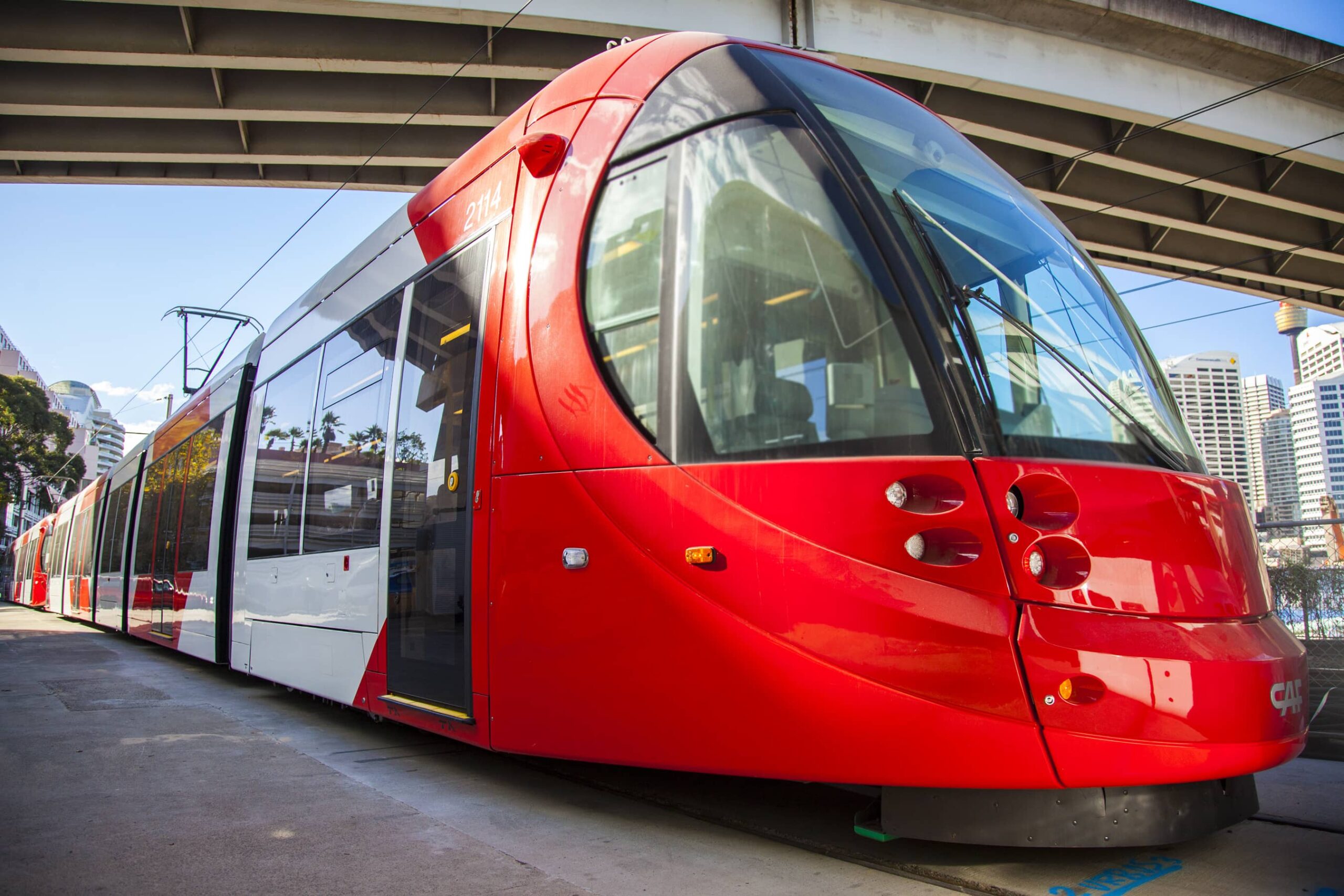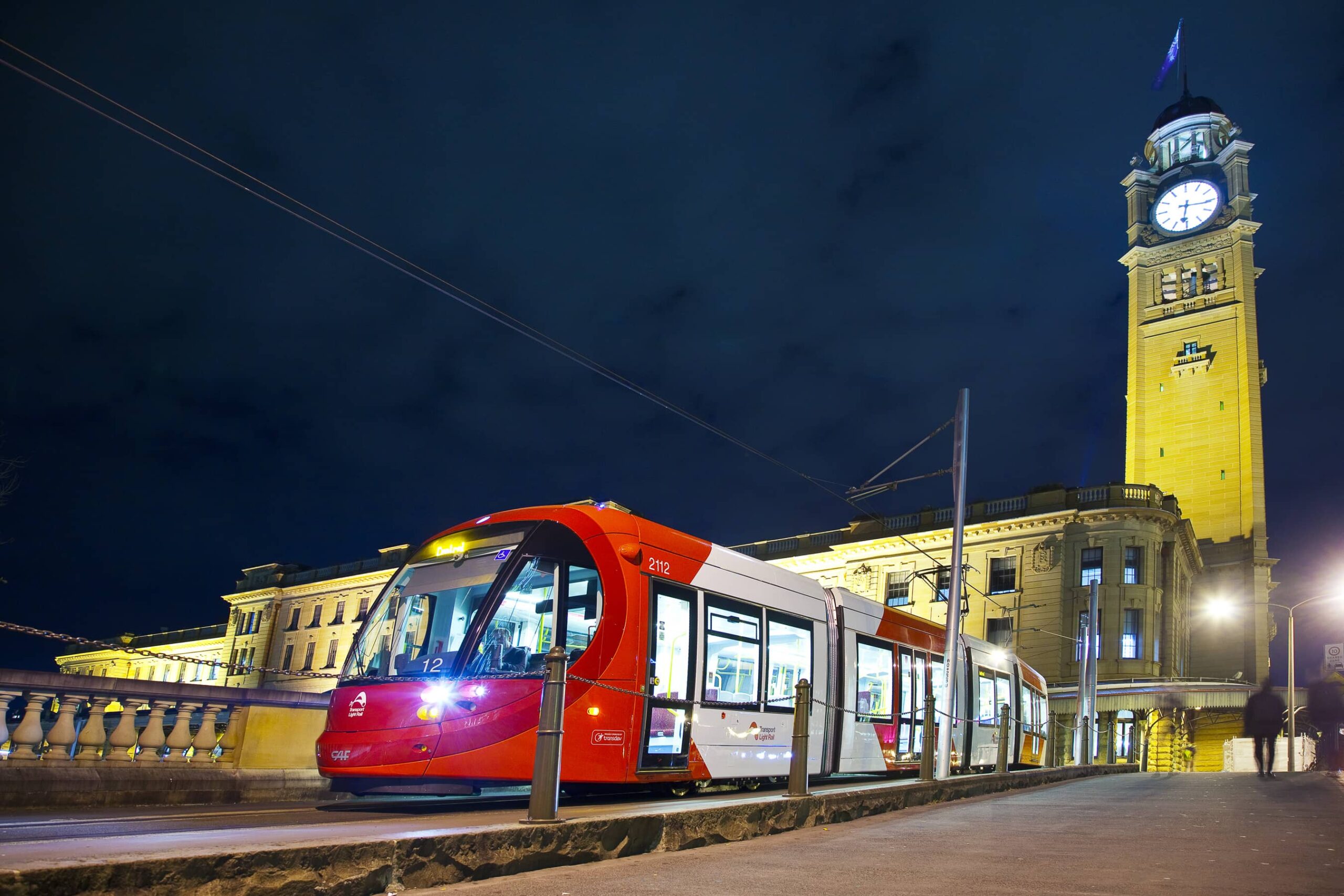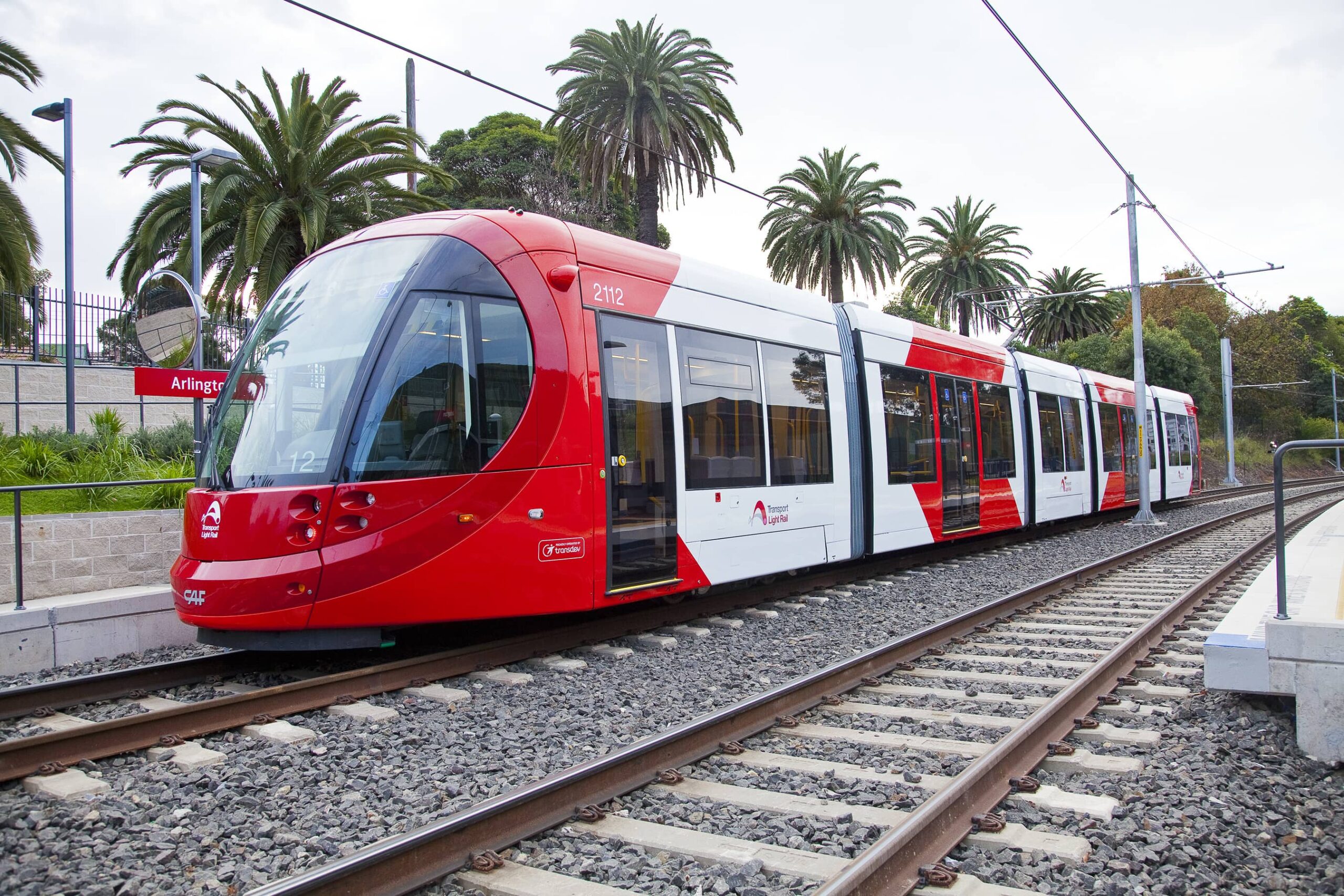Introduction
From the outset of the Sydney Light Rail project, it was imperative that sustainability was at the forefront of its design, construction, and operation.
We can now proudly add that in July 2021 we refinanced the Sydney Light Rail project with a 12-year certified green loan. This was achieved by being certified as meeting the Climate Bonds Standard low carbon transportation criteria. The Sydney Light Rail does this by helping to reduce greenhouse gas emissions from alternative modes of transport and by facilitating increased public transport use, particularly through the heart of the city. You can read our latest Annual Update Report to the Climate Bonds Initiative here. The report provides emissions data for the Sydney Light Rail in the year 1 July 2023 to 30 June 2024.
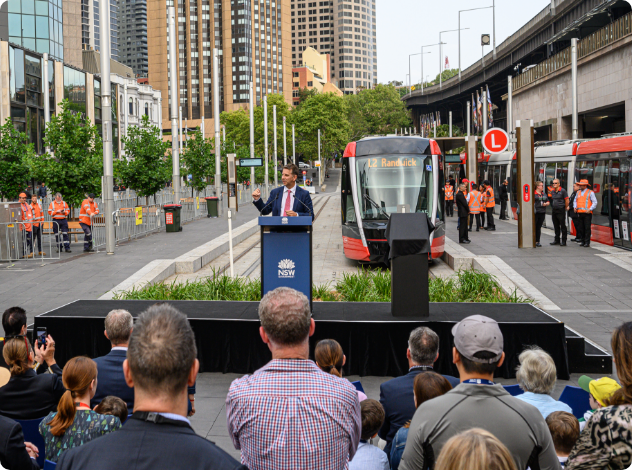
Promoting Sustainable Transportation & Innovation
The Sydney Light Rail has inherent sustainability benefits through its facilitation of increased cycling, walking and use of public transport throughout the light rail corridor. Where commuters were previously limited to the use of buses and private vehicles in those regions – both of which contributed heavily to congestion and emissions in the CBD and surrounding areas – the presence of light rail now offers the use of multiple, sustainable transit options.
The efficient use of resources in the design, construction and operations of the Sydney Light Rail further highlights ALTRAC’s promotion of sustainability outcomes. ALTRAC received a leading rating from the Infrastructure Sustainability Council (ISC) for the design and construction phases of the project and is currently in the process of obtaining an ISC rating for our operations.
Light Rail Sustainability Features
As part of achieving this leading rating, ALTRAC received full points in the innovation category, including achieving 4 Australian firsts:
The installation of a geothermal air-conditioning system to minimise potential impacts on significant trees, and cultural and heritage items. This system saves 15MWH of energy per year – the equivalent of 12.6 tons of carbon when compared to a conventional system. The system also has the added benefit of continuously recycling water, with a total lifetime reduction in water use of 13,596kL.
A regenerative braking system that recovers the energy produced during braking and reuses it on equipment such as lighting and ventilation. More than 99% of the energy produced can be recovered using this system, and it can even be sold back to electricity providers.
The use of an in-ground power-supply system in the CBD, which eliminated the need for overhead wiring. The use of this system preserved unobstructed views of Sydney’s landmarks and promotes a more aesthetic public domain, with flow-on benefits to tourism and the economic growth of the city.
The permanent magnetic motors used in the Alstom Citadis X05 trams have a higher power-to-weight ratio that delivers a 15% energy saving while having lower maintenance requirements and a quieter operation.
The Sydney Light Rail project currently produces renewable energy at three sites, and ALTRAC is committed to supporting the NSW Government's carbon reduction goals in both the short and the long term. As part of the ISC Operational Rating program, ALTRAC seeks to deliver increased sustainability outcomes through the use of greater energy efficiencies and the ongoing integration of renewable energy generation.
At present, ALTRAC employs a number of sustainability initiatives across the three lines of the IWLR and CSELR. These are outlined below:
- 50kw Solar Panels at the 220 Pyrmont Street Office
- 5000L rainwater tank at the 220 Pyrmont Street Office
- 5000L rainwater tank at 190 Pyrmont Street Depot
- Recycled tram wash facility
- Waste separation at offices (to reduce waste to landfill)
- Vehicle Regenerative Braking System
- 50kw Solar Panels at the Lilyfield Maintenance Depot
- 50kw Solar at the Randwick Maintenance Depot
- 20kw Solar Hot water heating systems
- Substation geothermal cooling system
- Recycled tram wash facility
- 150,000L Rainwater tank at Randwick Stabling Yard
- Vehicle Regenerative Braking System
- Waste separation at offices (to reduce waste to landfill)
- Waste separation at some stops (to reduce waste to landfill)
In addition to our sustainability initiatives, ALTRAC is proud that all Sydney Light Rail trams are 100% free of asbestos, cyanide, cadmium, mercury, CFCs, HCFCs, halons, polychlorinated biphenyls (PCBs), chlorinated solvents and other substances that pose a distinct harm and risk of degradation to the environment.
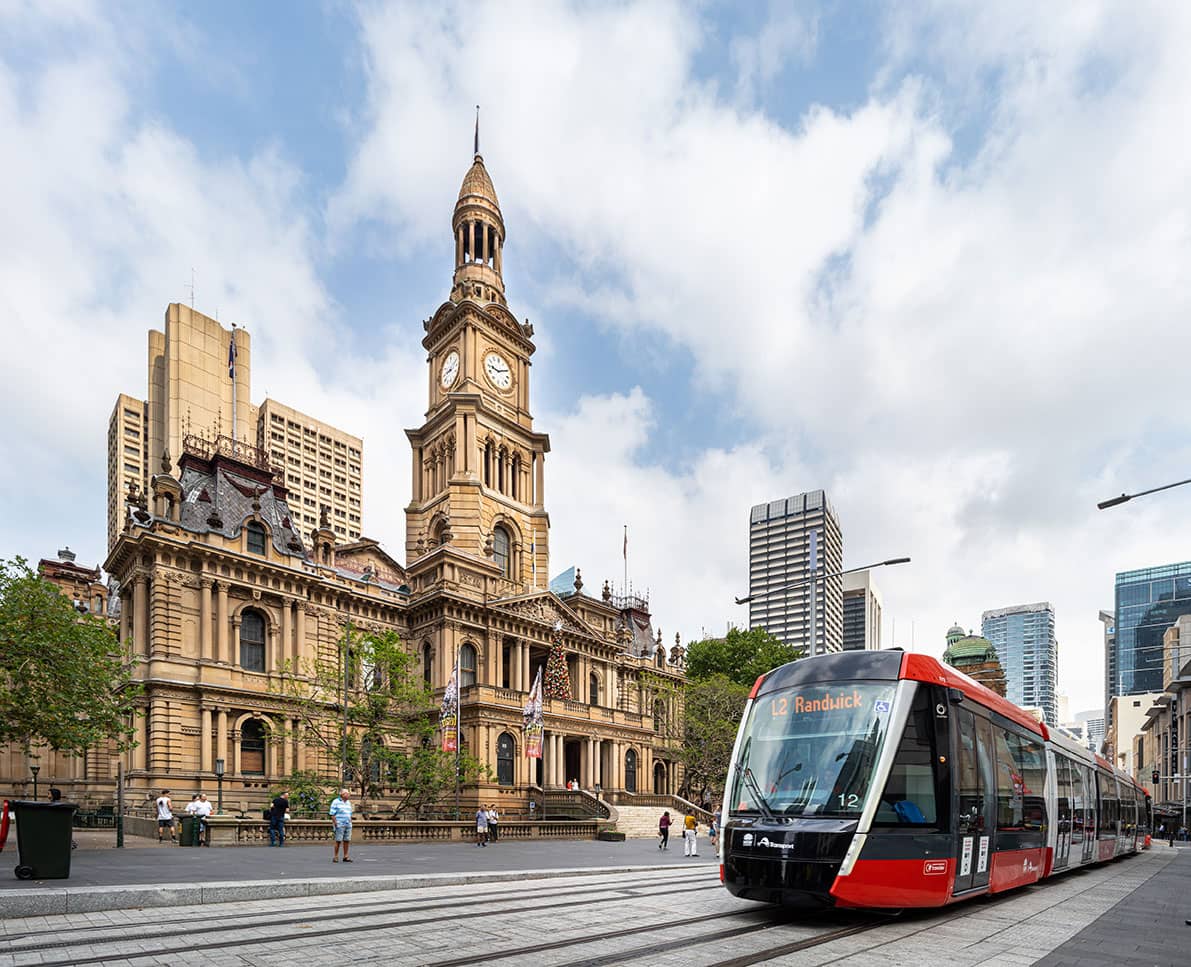
Future Sustainability Goals
As part of our future sustainability commitments, ALTRAC is currently considering implementing additional on-site renewable energy systems and a lighting upgrade to older infrastructure on the Inner West Light Rail (L1 line) to support increased energy efficiency.
With this agreement, Transdev Sydney became the first light rail operator to register with the ISC for an Operational Sustainability rating. Sydney Light Rail is also the first project in NSW and only the third project in all of Australia to register for an Operational Sustainability Rating. Sustainability improvements will also be made throughout the assessment period.
ISAP (Infrastructure Sustainability Accredited Professional) accreditation has been achieved by several key members of the Sydney Light Rail team to ensure that all of our projects and maintenance activities are planned and completed with improved environmental and sustainability outcomes.
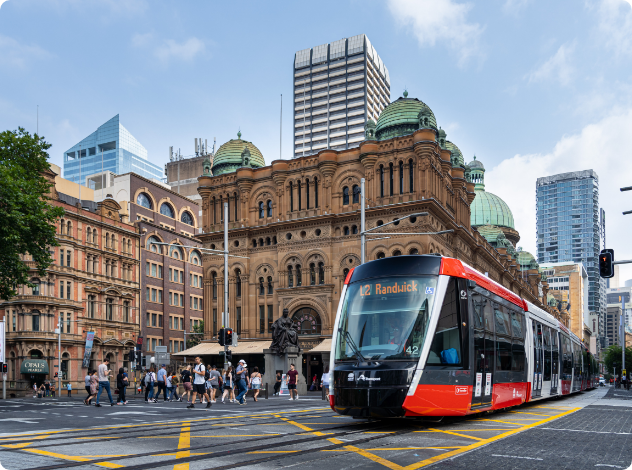
Ongoing SLR Sustainability Program: Infrastructure Sustainability Council
ALTRAC has supported its subcontractor, Transdev Sydney, to put in place an agreement with the Infrastructure Sustainability Council (ISC) to complete an operational Infrastructure Sustainability rating over a three-year period, commencing on June 30, 2021.
With this agreement, Transdev Sydney became the first light rail operator to register with the ISC for an Operational Sustainability rating. Sydney Light Rail is also the first project in NSW and only the third project in all of Australia to register for an Operational Sustainability Rating. Sustainability improvements will also be made throughout the assessment period.
ISAP (Infrastructure Sustainability Accredited Professional) accreditation has been achieved by several key members of the Sydney Light Rail team to ensure that all of our projects and maintenance activities are planned and completed with improved environmental and sustainability outcomes.
Do you have any questions or would you like to start an exciting project with us?
